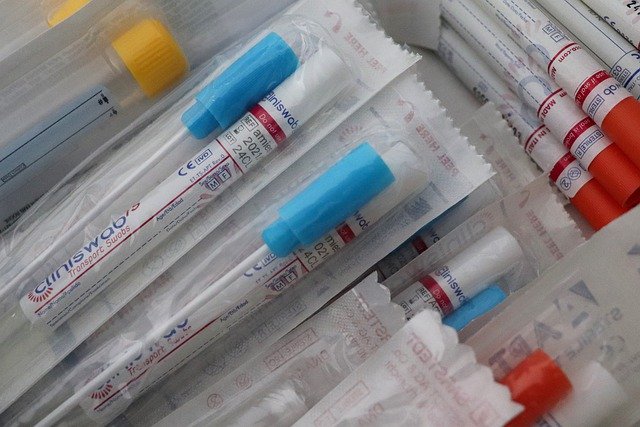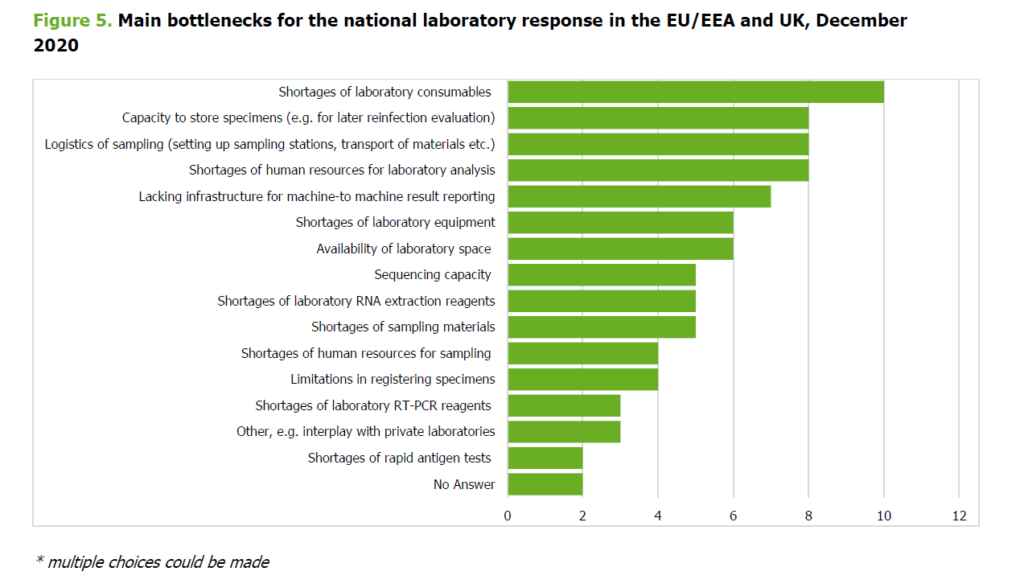Covid-19, in Europe there is still a lack of reagents for tests. Ecdc report

Lack of reagents and trained personnel. Testing and tracking capabilities at risk. What can be read in the ECDC report on Covid-19 in Europe
One year after the start of the Covid-19 pandemic, the first vaccines are approved, but there are still not enough reagents to test the population. The risk? Fewer testing and tracking gaps. The alarm is raised by the mapping of laboratories conducted by the European Center for Disease Control (ECDC) , the fourth survey on European laboratories since the beginning of the pandemic, based on the response of 19 laboratories from 16 Member States.
All the details.
STAFF AND REAGENTS: THE BOTTLE NECK
12 months after the official start of the pandemic, the lack of trained personnel is still a constant problem. There is also a lack of reagents in the laboratories, so joint purchasing for member states has also been activated.
"The main problems for the laboratory response to Covid-19 are mainly the shortage of laboratory reagents and consumables, as well as limited human resources," the report reads. "The EU joint procurement mechanism should alleviate some of the reported shortages of reagents and consumables in member states."

THE RISKS
Shortcomings, those above, not to be underestimated. “The continuing shortage of laboratory supplies and reagents” could be the cause of reduced “test volumes”.
The lack of reagents "will reduce the detection of the SARS-CoV-2 virus in the population and thus leave a knowledge gap in contact tracing and isolation of infected people and their contacts, thereby reducing the possibility of interrupting transmission", the Ecdc report reads , which also specifies that “the lack of qualified personnel in the laboratories is a constant problem since much of the laboratory work is still done manually. Training new staff requires resources from existing staff and can therefore slow down the laboratory's response ”.
INCREASED WORKING CAPACITY
However, some progress has been made in recent months. "EU Member States and the UK have dramatically increased their laboratory capacity over the past 11 months." Not only do most of the Member States “believe they can do enough tests until March 2021”.
THE ANTIGENIC TESTS
A help in identifying cases comes from rapid antigen tests. Many countries are adding "Rapid Antigen Detection Tests (RADT) to their testing strategies to reduce the pressure on RT-PCR testing," and some "member states have already included RADT in their case definitions," reads ECDC report.
ANSWERS IN 24 HOURS
Response times also improve. “Based on the survey, most laboratories are able to return all or most of the RT-PCR test results within 24 hours,” the report reads. Only one country “reported that the time elapsing between setting the appointment and communicating the results is on average 37 hours and for priority groups the time is 23 hours”.
This is a machine translation from Italian language of a post published on Start Magazine at the URL https://www.startmag.it/sanita/covid-19-in-europa-mancano-ancora-i-reagenti-per-i-test-rapporto-ecdc/ on Tue, 19 Jan 2021 15:30:08 +0000.
